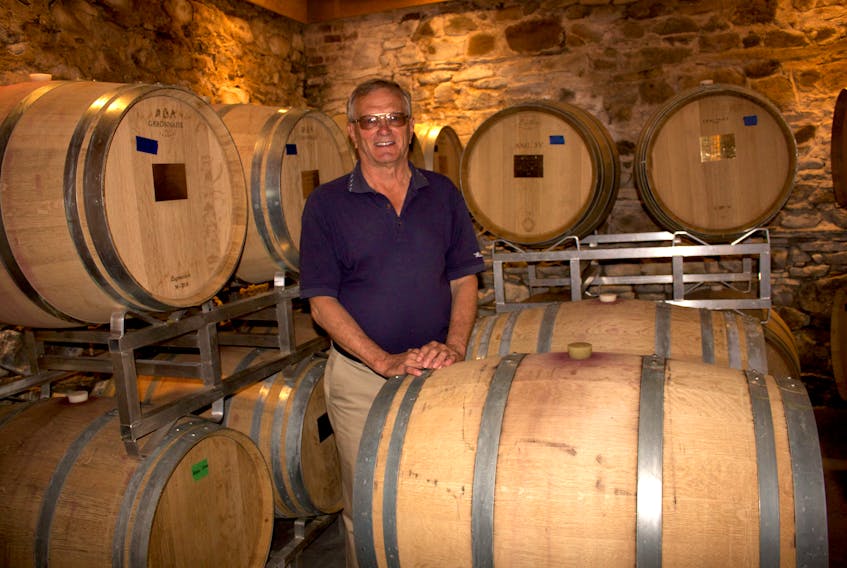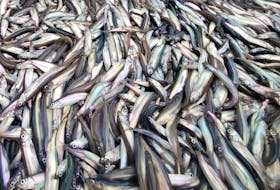PORT WILLIAMS, N.S. — A vineyard in Port Williams is celebrating a decade of producing wine varietals made from locally-grown grapes hearty enough to thrive in Nova Scotia’s climate, soil, and topography.
Planters Ridge Winery began to take shape when co-owners John Mclarty and Lisa Law were living in Ontario. On a Sunday morning in early 2010, Mclarty did a Google search for “wineries for sale." They were surprised and intrigued when Nova Scotia came up.
“We expected something might come up in Ontario, British Columbia, California or maybe Europe," he said in a recent interview.
"We were not even aware that there was a fledgling industry out here at that time. We decided to investigate because it looked like there were opportunities because it was a new and upcoming region.”
After several trips evaluating locations from Cape Breton to Bear River, the couple chose the Port Williams location on a 7.5-acre farm, with a 150-year-old house and barn, spectacular views and a rich history steeped in the New England Planter culture.
They moved quickly, having the land drained and tiled in the fall of 2010 and the vineyard planted in the spring of 2011. There are 5,200 grapevines in production on 18 acres in Port Williams and a second location at the base of the North Mountain.
CHALLENGING INDUSTRY
Mclarty’s experience as a chemical engineer and growing up on a farm, combined with Law's experience as a controller and accountant, have helped them build a successful business. However, making a go of it in the competitive wine industry is fraught with challenges.
“We are not just competing against the local grape and wine producers in this region,” Mclarty said.
“We are competing against Canadian and international wines because that’s what people in Canada, and particularly in Nova Scotia, are used to.”
Pine Ridge Winery prioritizes sustainable farming practices that include a combination of organic and conventional methods to deal with the major moulds that thrive in Nova Scotia’s cool climate. Fungicides are used to protect the vines only when necessary.
“When it comes to pesticide use, our major issues here in the Valley have to do with fungal problems and mildew,” Mclarty said.
“There are very few insects here. We don’t have to get involved with insecticides like some of the apple growers do because we don’t have those pests.”
FARMING TECHNIQUES
As the head winemaker, Mclarty has learned valuable lessons over the first 10 years.
“What we are finding out, the longer we are in the wine business, is it really comes down to the quality of the grapes you grow, and all these things you do in the vineyard do dramatically affect it," he said.
"The hand harvesting and the gentle treatment practices we follow are all things that are extremely important to us to get the desired grape quality because that predicates the wine quality you are going to make at the end of the day."
The short growing season in Nova Scotia and the variable climate offer unique challenges to Nova Scotia winemakers.
“You really have to be a better winemaker in a cool climate than a hot climate. We have to be very adaptable. We have to compensate for what Mother Nature is throwing at us,” Mclarty said.
“When you make wine from good grapes, the wine almost makes itself. We want to make the best wine possible. Life is too short to drink crappy wine.”
Editor’s note: This is part of a six-part series featuring some of the farmers who sell their products at the Wolfville Farmers’ Market.
RELATED:









